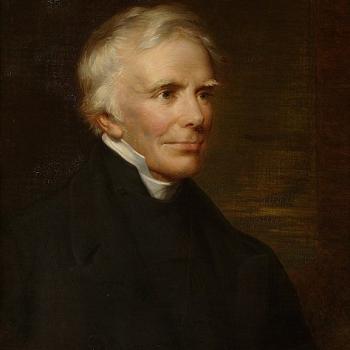Testimonies from eyewitnesses described heat coming from Philip's heart, and a kind of shaking from the beating of his heart that could not always be controlled. It animated his actions, especially when he prayed at Mass. Yet Philip avoided everything that might publicly suggest that he had received supernatural gifts. He deliberately dissuaded curiosity about himself and tried to conceal the holy fire that burned within him. His comedic jokes or pranks would take the attention away from himself, while making him all the more approachable and lovable to the people of Rome.
Philip's brotherly love and affection for others included constantly pointing out the consoling benefits of meeting Jesus personally within the confessional. This was no fire-and-brimstone approach; it was a genuine invitation of warm love found in Philip's kind gestures and countenance. Philip was sought after as a confessor, becoming known as the second Apostle of Rome, the first being St. Peter. The city was slowly being changed through this apostolate of the confessional.
Philip identified with the weaknesses and vulnerabilities of all. He met people as they were, regardless of title or social class. He was friendly with the most diverse individuals, from dignitaries and church hierarchy, to local shopkeepers—even to the prostitutes who were foisted on him by a few ill-mannered enemies. Philip spoke to the hearts of all, telling them what they most wanted to know and hear about the love of Jesus.
To keep those who returned to Christ growing in the right direction, Philip founded the now-famous Oratory. It became a place of prayer and discussion of spiritual enrichment every afternoon in small church of San Giralamo near the Campo del Fiore in Rome.
The Oratory was not so much a place, as a way. It was a kind of spiritual conversation that reiterated and built upon the gifts found in the confessional. The formula was simple: prayer first, then teaching based on the scriptures, catechesis, and church history. Philip eschewed the theoretical and concentrated on the practical, keeping the love of God accessible: "The wisdom of Sacred Scripture," he said, "is learned more by being prayed than by study."
Through the years the Oratory grew from a small band of friends meeting in a single small room to church-sized gatherings in a rebuilt Chiesa Nuova. Eventually multiple Oratories sprang up in the major cities of Italy, patterned on the original in Rome.
Philip was also fond of leading outdoor Oratories, otherwise known as pilgrimages to the Seven Churches of Rome. Along the route he would teach, often entertaining his crowds with his wit and practical jokes.
Philip was often the butt of his own jokes: shaving off half his beard or wearing silly clothes in public, but parading around as if they were the highest fashion in Renaissance Rome. He was a happy fool for Christ in ways that allowed Christ to be magnified, and his own lowly self to be humbled. As St. John's Gospel says: "He must increase and I must decrease" (Jn. 3:30). Pope John Paul II would later called Philip "the saint of joy."
Philip knew most people battled sin as it first played out in the mind—egoism, self-satisfaction, and pride. And he had a standard maxim for that too: "Sanctity lies within the space of three fingers," and Philip would dramatically lay his fingers across his forehead.
Followers of this joyful saint ranged from cardinals to nobility, to lowly vagabonds, to musicians and artists of the day. One notable member of the Oratory was the great Palestrina who composed beautiful hymns and other musical settings for the Oratory's congregations.
Philip knew that the power of beauty could draw others to the Beauty that is Christ. His personal authenticity and realism was a natural attraction too; he was the embodiment that reflected how the spirit and the world could be brought together. He was a faithful disciple who lived in the world without being consumed or ruled by it. His spirituality invited others to live Christ-centered lives. He would say, "The essential thing to do is to give oneself totally to God. He who wants anything other than Christ doesn't know what he wants."
Philip's amiability and access was to all; the key to his door was always found in the open. Yet at times, his ministry suffered at the hands of superiors who misunderstood his ways. Still, Philip always rendered obedience toward them, an obedience that came from the disciplined silence of his prayers. This shows us that Philip did not just skip along unscathed in life. He indeed knew hardship and struggles, but he also knew souls: "If you absolutely must overdo something, then overdo meekness, obedience, humility, and amiability, because all that is already good in itself."
There were healings that flowed from the prayers of this man. Pressed against his chest, one could feel the warmth radiating from his heart and some felt what seemed to be a tumor-like bulge around his heart. It was something he tried to hide for most of his life . . .





